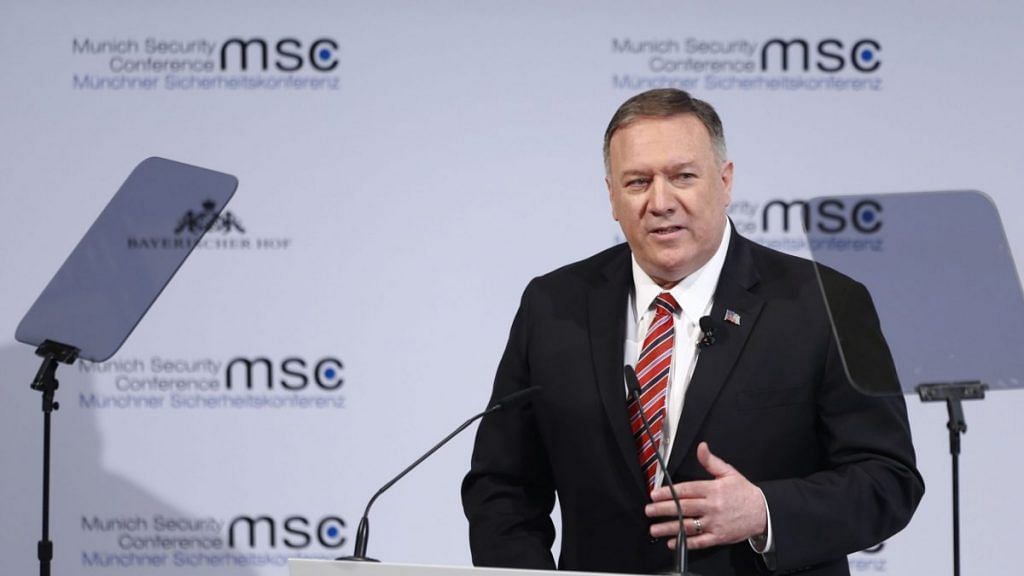The main theme during last week’s Munich Security Conference — a gathering of the world’s most influential international policymakers — was ‘Westlessness’. I think the word itself is lovely for it at once suggests a world without the West and the West’s restlessness at that prospect. It is bound to enthuse the West’s critics — some of who will tell you “I told you so!” — even as it sparks a convulsion of conferences, books, academic papers and columns (like this one) debating whether or not the West will decline. In a way, it takes the limelight away from China, whose rise has been at the centre of everyone’s attention for the past 20 years, and attempts to shine it back on Europe.
If Westlessness is to mean the shifting of the global balance of power away from the victors of a world war fought 75 years ago, then yes, it is both objectively true and, from India’s perspective, quite desirable. The composition of the United Nations Security Council is not only outdated but is the single biggest reason today why the UN is increasingly at the margin on managing international security. To the extent that the change in the global balance is acknowledged and the contemporary balance reflected in the UN, this interpretation of ‘Westlessness’ is useful.
However, if ‘Westlessness’ implies that the ideas that underpin modern civilisation are on the decline and will no longer be valid in the future, then the term is dangerously misguided. Dangerous, because it boosts the morale of ideologues, regimes and leaders who have seriously problematic ideas on what the world ought to look like. Misguided, because there is massive empirical evidence that individual rights, economic freedom, rule-of-law and reason are behind the unprecedented prosperity, well-being and expansive moral community that the world — and especially the West — enjoy today. The few decades of high economic growth that China has registered under authoritarian party-state regime stacks against a couple of centuries of sustained progress that Western countries achieved under liberal democracy. It’s just too early to tell if the Chinese model can sustain itself in China, leave alone work elsewhere. Taiwan says hello.
Also read: For a place in new world order, India must reverse over-securitisation of its foreign policy
Europe introspecting
What might have prompted Western Europeans to mull over ‘Westlessness’ is in part due to questions on their own position and relevance in the contemporary world. As Mike Pompeo, the US Secretary of State, told the conference, that from his perspective the West is winning. With US President Donald Trump distancing the United States from NATO and Britain exiting the EU, we should expect Europe to introspect on its own future. The real issue might not so much be about ‘Westlessness’, but about a particular configuration of the West that we were used to.
It was always presumptuous to believe that the US and Western Europe constituted the West merely because they had a shared commitment to liberal democracy, market economics, and a rules-based international order. It was shared interests in countering the Soviet Union during the Cold War and the anxiety to avoid another European hegemonic power that brought the two sides of the Atlantic together. Had it not been for Al Qaeda and international Islamist terrorism, we might have seen the differences between the US and the EU emerge a decade earlier. As we can see from their differences over Huawei and 5G, the two sides of the Atlantic do not see China in the same manner. Absent a common reading of what the big threats are, the chemistry is gone.
Also read: The era of data-globalism is over. Where does this leave India?
Is the West coming apart?
Interests might not be as convergent as before, but is the West coming apart on the issue of common values? Not quite. Despite the rise of populism across the world, it is not as if they’ve done away with constitutions and institutions. Yes, both liberal democracy and market economics are being tested in their strongholds, and it is good to be worried that they are. Yet more than a desire to emulate China, populism is quite likely an indication that the structure of the liberal democratic state needs to change. That’s because we are in the information age where societies are networked, but our governments are of industrial age design, operating hierarchically.
Information age governments will have to deal with highly-connected citizens and communities, devolving decision-making and decentralising power. China can’t do that successfully as long as it is ruled by the Communist Party. The West, on the other hand, is better placed to restructure itself because, well, it upholds individual liberty, economic freedom, and rule-of-law.
So, what liberal democracies — including India — must be concerned about is how to reshape the state in response to the profound social changes technology has induced. Everything — from the way we elect our governments, make policy decisions, adjudicate disputes to how we deliver public services — needs an overhaul. This still does not mean that allies of the previous century will remain allies in the future, just as old adversaries will make way for new. What it means is that concerns over ‘Westlessness’ are exaggerated, even if it does not appear so at this time.
The author is the director of the Takshashila Institution, an independent centre for research and education in public policy. Views are personal.
